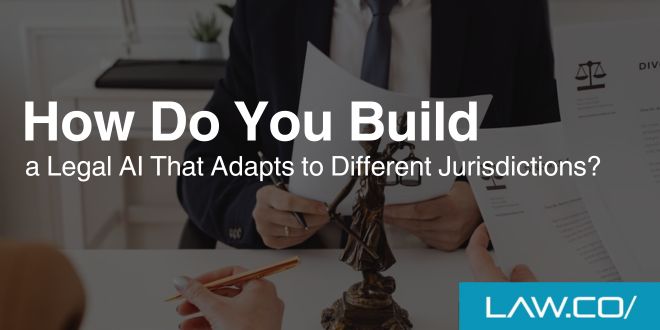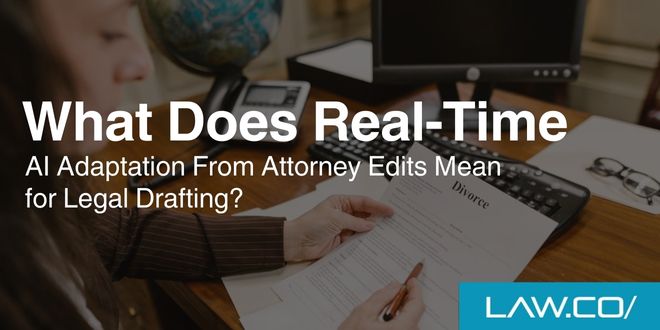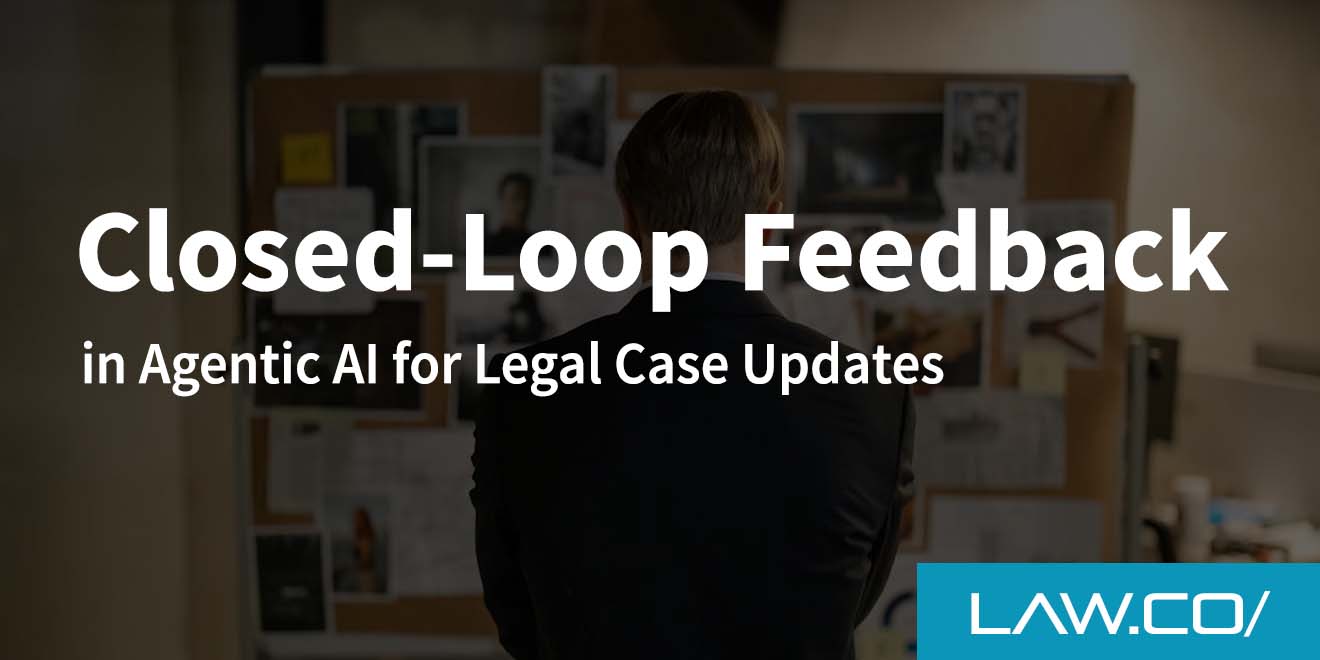

How to Create Reliable AI Legal Assistants for Lawyers
Gone are the days when lawyers and legal professionals had to perform tedious administrative tasks without assistance. Recent developments in Artificial Intelligence (AI) technologies have enabled us to create AI legal assistant which can help lawyers simplify their workflow, save time, and ultimately provide more efficient service.This article outlines the purpose of integrating intelligent technologies such as machine learning into an AI legal assistant for lawyers’ needs.It will focus on pinpointing each requirement that must be met for the successful integration of AI technology within the legal profession. The primary goal is to arrive at an effective solution whereby a paralegal's duties and processes can become both faster and easier with their implementation.
Understanding the Needs of Lawyers
As lawyers with an overwhelming amount of data, research materials, and processing tasks, there is a growing need to depend on technology for assistance. Lawyers face the challenge of sifting through huge volumes of case documents often within very narrow time frames; doubts about the accuracy and relevancy of data collected offer another problem.Also, collecting knowledge can become expensive due to the investigation costs involved and verifying existing sources. The legal profession is also hindered by regulations posed by court hearings that must be strictly adhered to avoid delays or penalties for non-compliance.AI paralegal assistants offer unprecedented levels of support that reduce manual labor through automation, thus being well-prepared whenever necessary for any case or issue at hand.
Identifying the specific requirements for an AI legal assistant
In order for AI legal assistants to successfully benefit the legal profession, certain specific requirements must be met. Above all else, lawyers need technology that allows them to have timely access to reliable and accurate up-to-date information across many specialty areas of law.Preferably, smarter decisions can be made quicker using advanced machine learning algorithms from various sources such as documents gathered- like existing contracts stored digitally. Law firm decision-makers should adopt an agile approach by regularly testing any AI legal assistant with customers in order to make immeasurable refinements addressing the dynamically changing needs of potential clients.
Data Collection and Analysis

Gathering and organizing legal data
Data collection and analysis lies at the heart of an effective AI legal assistant, forming the basis of accurate predictions and decisions.For a competent AI to function optimally, it needs to be trained with datasets beforehand. This involves collecting large amounts of relevant data from reliable legal sources such as statutes, court cases, case documents, media reports etc., while ensuring that they are organized in a uniform manner.Machine learning techniques can then be utilized on these datasets for pattern analysis and extracting meaningful insights that may otherwise go unnoticed or underutilized by human lawyers.Whether it is text classification tasks like sentiment analysis or automated document clustering algorithms; efficient data gathering and organization processes form the vital foundation for any sound academic or commercial application of artificial intelligence in law.
Utilizing machine learning techniques for data analysis
Data analysis is a core component of artificial intelligence that can be used to extract value and new knowledge from large amounts of legal data.Machine learning techniques help automate the process of analyzing large volume of information, making it easier for lawyers to find patterns in that data.Technology such as predictive models uses historical data to train machines on how to identify links existing between different sets of variables, which can then help create processes to avoid outcomes with negative implications or possibly indicate possible solutions for unforeseen situations.
Natural Language Processing (NLP) Capabilities

Developing NLP algorithms for understanding legal documents
Natural Language Processing (NLP) algorithms enable the AI legal assistant to interpret and process natural language text written in human language.It involves building computer programs capable of recognizing patterns and understanding complex legal documents, in order to extract pertinent information accurately.In addition, NLP techniques such as text summarization help reduce document length while maintaining relevance by detecting repetition, paraphrasing complicated sentences as well as other related textual problems that manifest from the inconsistencies of human writing in their native tongue.
Implementing text summarization and information extraction techniques
Text summarization and information extraction techniques are two core capabilities of Natural Language Processing (NLP) that enhance legal research by significantly reducing the time spent on manual processes.Text summarization automatically compresses given textual information into concise summaries while information extraction enables computers to extract highly specific pieces of knowledge from text through algorithms dealing with natural linguistic queries.These techniques are not only useful for lawyers in understanding new cases but also could be applied in discovering trends and patterns hidden within data gathered across multiple court documents.
Legal Research and Case Management

Efficiently searching through vast legal databases
Legal research and case management are essential components of a successful AI legal assistant. When processing huge amounts of legal data, the assistant needs effective methods to search through these masses with precision and depth. Leveraging sophisticated algorithms helps organize legacy hierarchical databases keeping searches efficient and reliable.While many web crawlers face several challenges completing such tasks computationally secure without affecting performance speed or resources availability used, relying on an industry-standard hosting AI technology platform proficiently delivers knowledgeable resources accurately.
Categorizing and indexing legal information
Categorizing and indexing legal information is helpful for locating information from large collections of documents. When data is recorded in an organized way, it takes much less time and effort to uncover the specific element needed. AI-based tools are particularly adept at rapidly categorizing and indexing legal data.By segmenting data into topics identified by keywords or key phrases related to the nature of a query, systems equipped with natural language processing can quickly sift through material and return search results that exactly match what lawmakers need for case analysis.For example, AI can turn texts written in multiple languages into machine code readable files which enable devices to understand speech commands given over an interface like a chatbot.
Tracking case updates and managing legal documents
Lawyers are regularly tasked with managing a large volume of casework. To be able to accurately and quickly locate pertinent information from legal databases is essential, which can be strategically accomplished using AI legal assistants.An AI assistant can track case updates swiftly since it could invisibly monitor files across different jurisdictions and ensure consistency when categorizing factual timelines or making significant decisions in a timely manner.Also, the ability to efficiently manage legal documents such as pleadings, briefs, and memorandums would essentially define how well an AI assistive software serves its purpose for lawyers -- sorting data internally allows them to access relevant case facts with greater ease without the problems posed by manually searching physical folders.
Machine Learning for Predictive Analysis

Using historical legal data to train predictive models
Predictive modeling is a powerful machine-learning tool for lawyers to make informed decisions about legal proceedings. By mining vast amounts of historical legal data, AI can generate robust predictive models that help lawyers anticipate outcomes for current cases.These predictive models identify relationships between factors in the data sets such as court decisions, relevant laws and regulations, past decisions made by other judges, and outcomes from similar proceedings across numerous jurisdictions.
Assisting lawyers in making informed decisions and predictions
Machine learning can be employed to collect data from past cases and build predictive models that lawyers can use to make better decisions. By assessing a range of variables in the form of historical legal records, sophisticated previous outcomes can be more accurately analyzed by an AI legal assistant.This has been instrumental in uncovering patterns and trends within deep datasets which identifies systemic issues that were not plausible before.Additionally, as AI gets smarter it will continue to develop accurate evidence-based predictions about outcomes for future litigation endeavors, giving advisors insight for navigating courses of action quicker - allowing them to provide clients with well-informed guidance faster than ever before.
Ethical Considerations and Security

Ensuring the AI legal assistant adheres to legal and ethical standards
In the development of an AI legal assistant for lawyers, it is important to ensure that all necessary ethical considerations and security measures are taken into account.All data collected or used must comply with relevant laws based on geographic location and government rulings- this ensures that sensitive information is not compromised and is protected from unauthorized access by third parties.
Implementing robust security measures to protect sensitive data
Creating robust security measures is crucial to ensure that data collected from legal documents and databases remain protected from potential threats.This can be done through strategies such as encryption protocols, two-factor authentication, regular scans for foreign activity or malicious intrusions, comprehensive user access controls, and secure backups of datasets stored in a private cloud environment.
Integration with Existing Legal Systems
Compatibility with legal software and platforms
Integration with existing legal systems is important for any AI legal assistant to function properly. This ensures that the AI will be used to its fullest extent within lawyers' workflows.It should make use of APIs whenever possible in order to ensure efficient communication between systems so the workflow isn't slowed due to redundancy or incompatibilities.Law firms are looking for an integrated solution instead of multiple applications built from separate providers, therefore integration means more trust in the system among users individually and collectively accordingly.
Conclusion
AI legal assistants are becoming increasingly important for lawyers due to the time saving and efficient assistance that they can offer. They reduce knowledgeable-worker bias, empowering lawyers with auto-populated research documents, predictive analytics, and automated activities such as document generation.Moreover, these systems must operate properly from different dimensions including needs analysis and understanding sure ethical and security guidelines need to have adhered- while data collection and test summarization take place, finally existing platforms should find it easy to integrate with the new AI assistant without further ado.This outline presents a pertinent overview of how AI can revolutionize legal services by providing support in streamlining cases much faster than what one could expect traditionally.

%201.svg)




.jpg)





